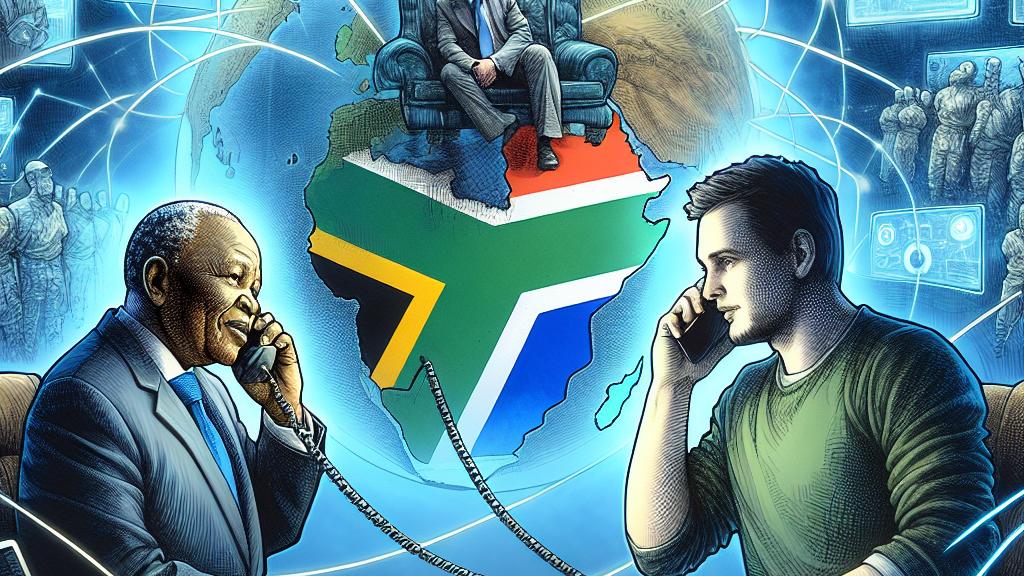Understanding the Tensions Between Trump and South Africa's Land Laws
Overview
- Cyril Ramaphosa's diplomatic outreach to Elon Musk aims to ease escalating tensions over land laws.
- Trump's threats of funding cuts highlight significant concerns about fairness in South Africa's land reform.
- Historical injustices regarding land ownership stir impassioned debates and urgent calls for resolution.

A Strategic Conversation Amid Rising Tensions
In an increasingly charged political atmosphere, South African President Cyril Ramaphosa reached out to tech entrepreneur Elon Musk, who is closely allied with President Donald Trump. This phone call, laden with significance, was intended to clarify South Africa's unwavering commitment to the justice and fairness enshrined in its constitution. Trump's recent threats to cut all future funding to South Africa, triggered by accusations of land confiscation and systemic discrimination, have added serious weight to this conversation. In fact, Trump stated on his social media platform, ‘I will be cutting off all future funding to South Africa until a full investigation of this situation has been completed!’ Such bombastic claims raise alarms not just politically but also in the realm of international relations, affecting how nations perceive each other.
Unraveling a Complex Historical Fabric
To truly grasp the current discourse, one must delve into South Africa's tumultuous history, particularly the effects of the Natives Land Act of 1913. This infamous act established a legal framework that stripped the black majority of their land and plunged them into an era of dispossession. Fast forward to today: even after the fall of apartheid nearly thirty years ago, an astonishing 72% of privately owned farmland remains in the hands of white landowners. This stark statistic lays bare an uncomfortable truth—the need for land reform is urgent and pressing. For many South Africans, this isn’t merely about policy; it touches deeply personal narratives of loss, inequality, and a quest for justice. As cries for reparation echo across the nation, the debate surrounding land ownership has transformed into a poignant battle for dignity and recognition.
Economic Consequences and Global Repercussions
Yet, the stakes extend beyond moral obligation; they venture into the realm of economic stability. Critics of the new land reform laws fear they could usher in disastrous consequences reminiscent of Zimbabwe's land seizure debacle, which devastated an economy once thriving in agriculture. Imagine a future where foreign investors retreat, spooked by fears of government overreach and instability! Although Ramaphosa insists that land will only be taken under ‘just and equitable’ circumstances, skepticism looms large. Musk’s comments questioning the fairness of the laws illustrate how this complicated issue affects not just domestic audiences, but has international implications as well. In essence, the land reform debate isn’t only a matter of national importance; it is a critical focal point that influences South Africa's relationships on the global stage. As the country continues navigating these turbulent waters, the balance between achieving justice and sustaining economic viability remains precariously poised.

Loading...